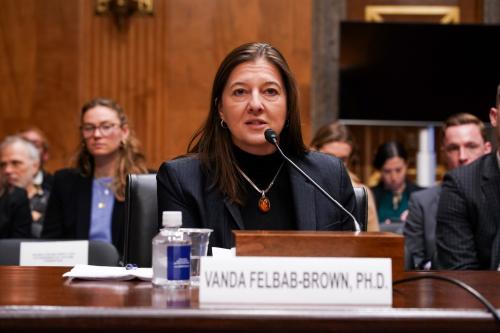Editors Note: In a chapter from The Afghanistan-Pakistan Theater: Militant Islam, Security, and Stability (Foundation for Defense of Democracies, May 2010) Vanda Felbab-Brown writes on the critical importance of regional counternarcotics policies in Central and South Asia that focus both on poppy reduction in Afghanistan and building economic stability Pakistan.
Introduction: Perhaps nowhere in the world does the presence of a large-scale drug economy threaten U.S. primary security interests as much as in Afghanistan. There, the anti-American Taliban strengthens its insurgency campaign by deriving both vast financial profits and great political capital from sponsoring the illicit economy. The strengthened insurgency in turn threatens the vital U.S. objectives of counterterrorism and Afghan stability, as well as the lives of U.S. soldiers and civilians deployed there to promote these objectives. The opium poppy economy also undermines these goals by fueling widespread corruption in Afghanistan’s government and law enforcement, especially the police forces.
A failure to prevail against the insurgency will result in the likely collapse of the national government and Taliban domination of Afghanistan’s south, possibly coupled with civil war. A failure to stabilize Afghanistan will in turn further destabilize Pakistan, emboldening jihadists and weakening the resolve of Pakistan’s military and intelligence services to take on Islamic militancy. Pakistan may once again calculate that it needs to cultivate its jihadi assets to counter India’s influence in Afghanistan—perceived or actual.



